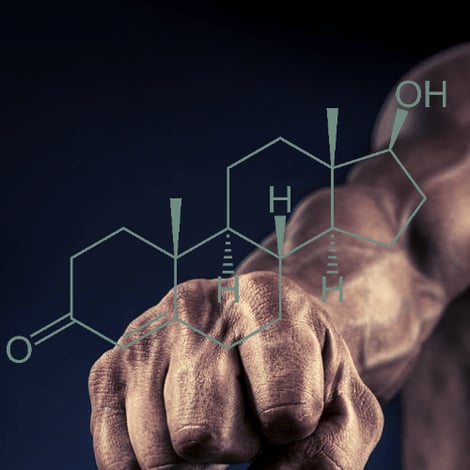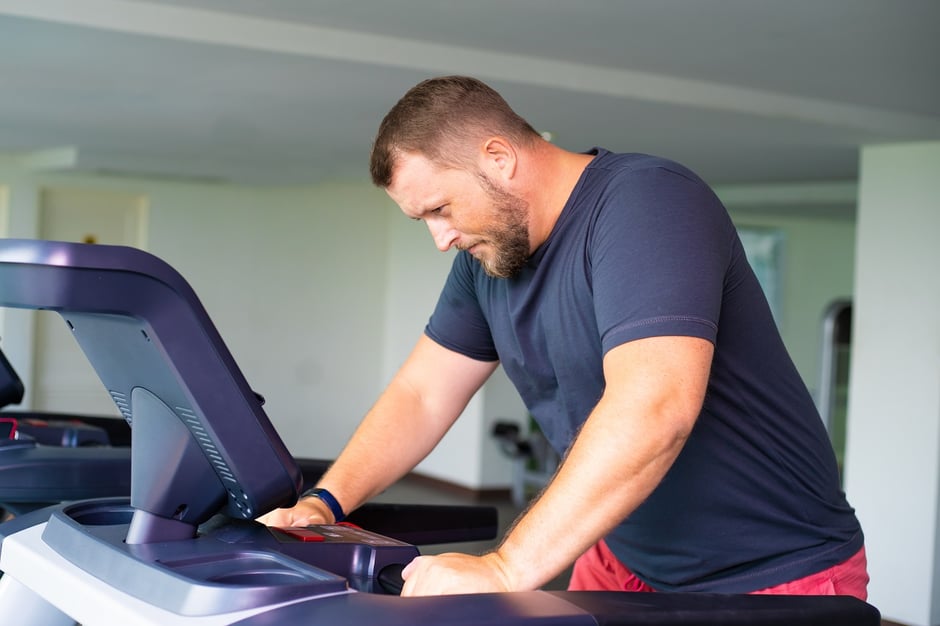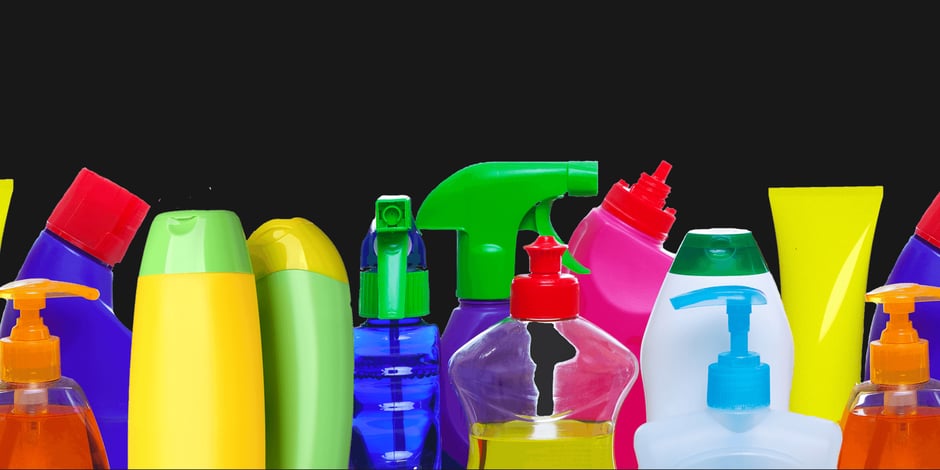
Are you feeling an increasing lack of confidence, having relationship issues, stressing about work. low sex drive or even feelings of purposelessness? A lack of testosterone could be the root cause of your problems. Testosterone is the primary male sex hormone. It is an anabolic steroid that is often associated with “masculinity”. It plays an important role in male sexuality, reproductive function, body and facial hair growth, the growth of muscle and bone mass, and impacts a man's ability to lose fat. Not only that, testosterone is also an anti-aging hormone which means that maintaining a healthy level of testosterone can make you live longer.
However from the age of 30 onwards, a man’s testosterone levels begin to steadily decline at a rate of around 1% per year. In addition, exposure to endocrine-disrupting chemicals as well as consumption of estrogen mimicking compounds in food can negatively affect testosterone levels and production. Low sex drive, erectile dysfunction, hair loss, or mood changes are signs of low testosterone levels amongst others.
All is not lost however! You can definitely "biohack" your testosterone levels and fight that decline as you age by following out sensible holistic principles outlined below.
Exercise
Cardio
Long endurance sports, such as running or cycling (or any prolonged exercise at moderate intensity), have shown to have a negative effect on testosterone levels. Researchers link this phenomenon with the loss of extra muscle mass and increased stress that results from long bouts of cardio training as opposed to other types of exercise or sports.
However, studies show that you can increase your testosterone levels by sprinting. According to this study1, after following a 4-week training program which included 2 sessions of a series of sprints at maximal effort, the participant’s total level of testosterone increased significantly.

“I have worked with Levitise for 2 years and since then my testosterone levels have gone from 10 nmol/L to 24 nmol/L. I'm sleeping better, less stressed, more active have lost weight and am feeling great."
Andy - Fund Manager
Strength training
Lifting heavy weight might be one of the best ways to boost your testosterone levels. Studies2 show that strength training will help you gain more muscle and lose fat, both having a direct effect on your testosterone levels and helping you fight its decline as you age. Here are the 4 basic principles to follow:
- Lift heavy: 85-95 % of your 1RM (one repetition maximum) with low reps
- Focus on compound exercises that engage as many muscle muscle groups as possible such as squats and deadlifts (forget about vanity based exercises such as tricep extensions)
- Use your legs: once again focus more on squats and deadlifts than bicep curls
- At least 3 strength training workouts per week is ideal.
That being said, if you’re new to weight training, learn how to lift with proper form and take your time to build a solid foundation and then work your way up to lifting heavy weights.
So if you’re trying to boost your testosterone levels, forget about long bouts on the treadmill and start pumping iron - cliché maybe, but so true!
Stress and sleep
Managing stress levels is also crucial to maintaining optimum levels of testosterone. Indeed, periods of stress will keep your cortisol levels elevated and one of the many disadvantages is the inhibition of testosterone secretion. Why? Because the brain suppresses production of sex hormones like testosterone in favour of stress hormones (e.g. cortisol).
From an ancestral and biological standpoint, in an emergency situation whenever your survival is in jeopardy, sex hormone related behaviours, such as mating and fertility, are simply not a priority. The priority is your survival and your body will act accordingly. In any case, you can’t raise a baby in a war zone, and your body will make sure this won’t happen.
Chronic stress from modern living ensures a constant release of high levels of cortisol into the bloodstream and this leads to blocked testosterone production in the long term.
There are several strategies that you can use to manage and reduce stress either working on them directly or indirectly. Strategies such as deep breathing, meditation, zonal exercises and emotional freedom techniques are all very effective.
In addition, the majority of testosterone is produced during the night. So waking up in the middle night worrying about work, family, and other issues can impact your hormone levels significantly. As shown in this study3, “various disorders of sleep including abnormalities of sleep quality, duration, circadian rhythm disruption, and sleep-disordered breathing may result in a reduction in testosterone levels”. A lack of sleep also creates a stress on the body, raises cortisol and as we said just above will block the production of testosterone. Getting a good night's sleep is essential.

Nutrition
Eating for your hormonal health is very important and something that we have been programmed to sacrifice for decades now by following advice that advocates highly processed refined carbohydrate diets (look at any government food pyramid) and low fat diets. All hormones, including testosterone, are synthesised from cholesterol. If your cholesterol levels drop to zero you die. Cholesterol is created from a combination of vitamin B5 + acetyl CoA + dietary fats. A combination that is incredibly difficult to achieve with a poorly balanced nutritional profile.
In addition, wheat, sugar, commercial dairy, pesticide laden foods and in particular, industrial vegetable oils, are incredibly inflammatory which induces a cortisol response to reduce inflammation and prioritise the night-time rebuilding of cortisol instead of testosterone. So consuming an anti-inflammatory diet is another strong recommendation to aid in maximising testosterone production.

Environmental toxins
Endocrine disrupting chemicals (EDC’s) are substances that interfere with the normal function of your endocrine system, glands and organs that secrete your hormones.
The exposure to these endocrine disruptors can either hinder the body’s ability to produce hormones such as testosterone or can “mimic” estrogen, the primary female sex hormone. These substances can trick your body into thinking they are real hormones and can have the affect of increasing or decreasing levels of certain hormones in our blood.
These EDC’s are everywhere nowadays: in the air, in soil, water supply, foods, cosmetics, or manufactured products, such as plastics and cans. In addition to their effect on our endocrine systems, these substances are also linked to numerous other health issues such as cancers, obesity, diabetes, thyroid issues and respiratory problems.

In order to protect your endocrine system and maintain a healthy production of testosterone, you should simply try to avoid exposure to these chemicals. Here a few strategies to follow:
Wrapping up...
As you know if you are a long time follower of Levitise we look at life through the 10 elements of health happiness and longevity. We've picked out 5 today that are the key for getting the most bang for your buck when it comes to boosting testosterone production and recovering your manliness and confidence. (1) The right kind of exercise; strength based instead of cardio based, (2) minimising stress and employing stress reduction techniques (3) getting adequate and quality sleep, (4) ensuring enough fat and protein in your diet to build dense muscle mass and repair and maintain a healthy endocrine (hormonal) system and finally (5) removing toxicity, particularly hormone disrupting toxicity, from your environment. Focus on these 5 big wins and you'll be feeling on the inside what like Dwayne Johnson looks like on the outside!
To your health, happiness and longevity,
The Levitise Team
P.S. If you love this blog post then do check out our fortnightly newsletter where you'll get the freshest content on health, nutrition and fitness delivered straight to your inbox. Don't miss out and sign up here with just your name and email.
1. Physiological and performance changes from the addition of a sprint interval program to wrestling training. 2011. https://www.ncbi.nlm.nih.gov/pubmed/21849912
2. Testosterone physiology in resistance exercise and training: the up-stream regulatory elements. 2010. https://www.ncbi.nlm.nih.gov/pubmed/21058750
3. The relationship between sleep disorders and testosterone in men. 2014. https://www.ncbi.nlm.nih.gov/pmc/articles/PMC3955336/

Write a comment